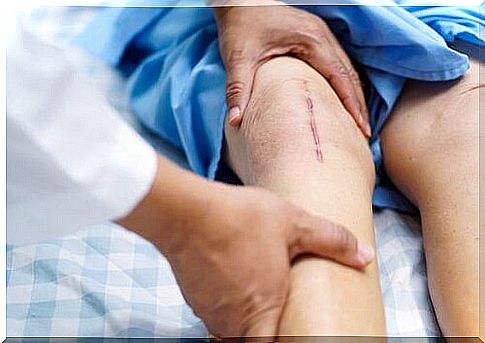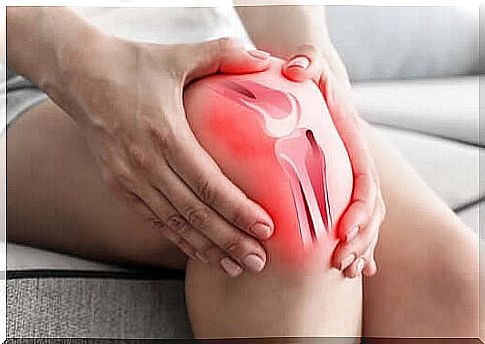Healing After A Knee Transplant

A knee transplant is a safe procedure. Overall, they give really good results. However, it is important that you follow the guidelines for healing as strictly as possible in order for the process to succeed.
Healing after a knee transplant is no mystery. Basically , take care of the wound, take all the necessary medication and exercise regularly.
Patients should be aware that the healing process depends on how well they follow these steps. You definitely need your family’s support in the home care stage. However, you should be able to easily get through the rehabilitation, without major problems.
Knee transplant surgery

There are several reasons why knees get worn out. Age is the most common factor because the cartilage disappears with age. Other factors such as obesity, intense sports or jobs that require physical strength are also common.
In some cases, there is a lot of deterioration, which makes patients need a knee transplant. This procedure replaces the most important parts of this joint, with artificial parts.
Generally, these operations last between two and three hours. After the procedure, you go to rehab. Patients receive a bandage and drain in their knees. The next day, the doctors take X-rays. If all goes well, they can start putting weight on the foot, which officially starts the healing process.
Healing after a knee transplant
Generally, you should be in the hospital for two or three days after a knee transplant. Then you start the rehabilitation at home. At this point, there are three important things you need to do to care for your knee. They are:
- Wound care. The main goal here is to prevent infections. To prevent them, change the bandage daily and take your prescribed medication. It is important to prevent the wound from getting too wet.
- Balanced diet. A balanced diet does an incredible amount for your body’s ability to heal. In addition, your doctor may prescribe you supplements, especially if you are missing some important vitamins.
- Regular physical activity. This is a key element, especially in the first few weeks after surgery. Your physiotherapist will also tell you what exercises you need. The healing time largely depends on how consistently and regularly you perform the exercises.
Physiotherapy is really important. In general, the program will require you to walk quite a lot, combined with specific exercises. You should also return to your daily activities as soon as possible.
Also read: 5 Knee Strengthening Exercises That You Can Do At Home
Other general recommendations

There are plenty of things to do if you want to speed up your healing. The most important are:
- Get help. The first few days you need someone to help you with your daily activities.
- Take care of the wound. Generally, keep the wound covered until the doctors remove the stitches. This generally happens approx. two weeks after the knee transplant.
- Move your knee. We recommend that you bend your knee every 20 minutes and change the position of your legs. In addition, you should preferably not place pillows under the operated knee.
- Discomfort at night. If you feel uncomfortable at night, we recommend that you get up and walk around a bit.
- Proper footwear. Make sure you wear comfortable, closed shoes. In fact, this is also important for your stability so that you do not fall.
- Put on clothes while sitting. It is better to put on clothes while sitting down because you will not be as stable as usual.
- Keep your hands free. When you go, it is best not to have anything in your hands. You need to focus on not falling.
- Use of aids. We do not recommend using a cane or crutches unless your doctor specifically asks you to do so.
Also read: 5 simple and effective tips to overcome a knee injury
Warning signs after a knee transplant
Like all postoperative periods, knee transplants have some potential risks and complications. These are the most important warning signs to look out for. If you experience one or more of them, see your doctor immediately. They are:
- The wound bleeds a lot after the operation.
- Constant and high fever.
- Extreme pain that you can not control with painkillers.
- Significant inflammation in the knee.
- Change in skin color. Insert if skin becomes very red, bluish or black.
- Deviation of the knee. Also inability to support on your foot after falling.









